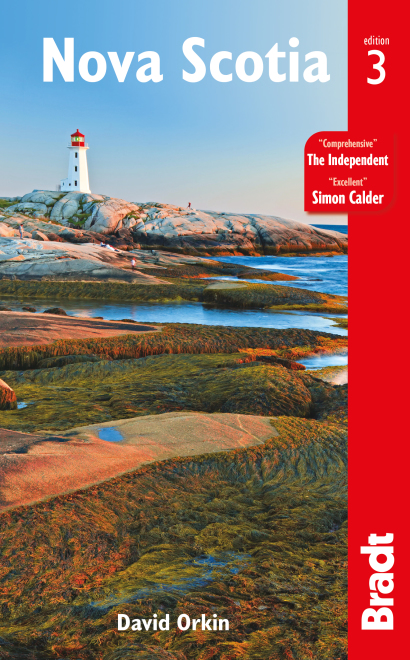Trees cover close to 80% of Nova Scotia, but these aren’t just evergreen conifers – something that becomes strikingly apparent if you visit in the autumn. Whilst the leaves of many species turn yellow, the pigmentation of red oak, mountain ash, blueberry and huckleberry leaves, for example, turn red, whilst sugar and red maple leaves run the range from yellow to purple.
Contrasted with the dark green of the evergreens and the blue (hopefully) of the sky, the result is one of nature’s most stunning displays. Typically, the ‘leaf-peeping’ season runs from the end of September until late October, and is at its height in the second week of October.
The best viewing areas (if you time it right) include Kejimkujik National Park, Bear River, Wentworth and Cape George. There are many wonderful areas on Cape Breton Island, too – the Celtic Colours Festival is timed to coincide with nature’s brilliant autumn leaf display. Eastern Shore, much of it forest-covered, with spruce, fir, birch, larch and maple predominant, is also one of the province’s most rewarding destinations for viewing the splendour of the autumn colours.
Bear River
Dubbed ‘The Switzerland of Nova Scotia’ in tourist literature, this interesting little laid-back community with an inland riverside setting is well worth a visit.
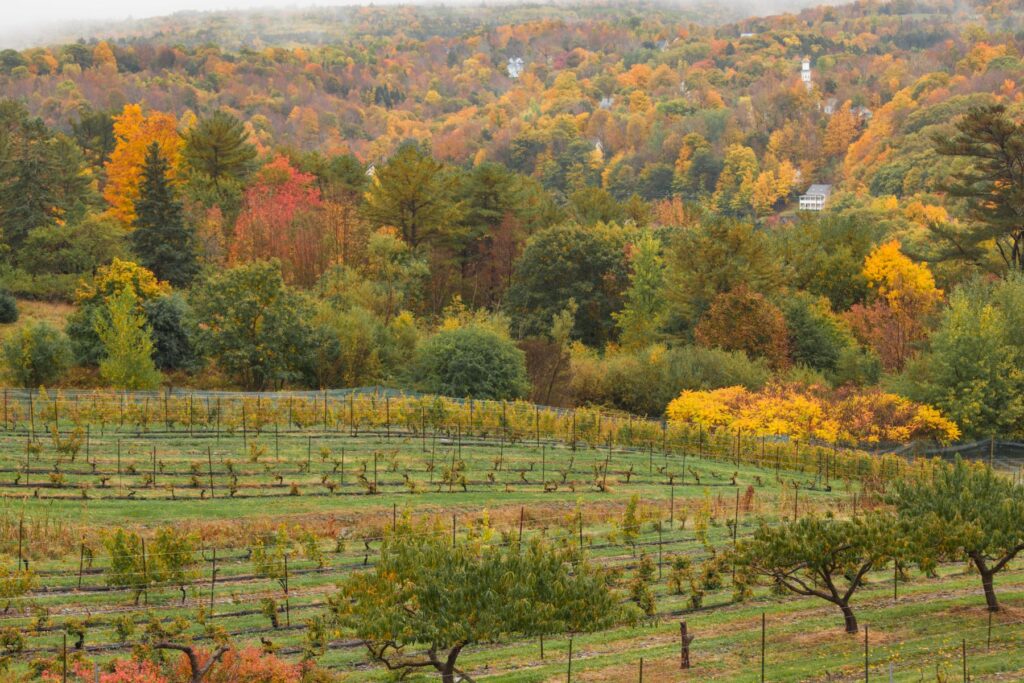
Houses and churches on winding streets peer through the trees on the steep hills on both sides of the river, and many of the village’s riverside buildings are built on stilts (twice a day, the high Bay of Fundy tides make their way into the Annapolis Basin and up the river). Pretty throughout the year, Bear River is stunning in autumn, when the hardwood trees are ablaze with colour.
Cape Breton Island
The nine-day-long Celtic Colours International Festival (done remotely in 2020) takes place in the second full week of October. It combines what traditionally is the best time to see nature’s spectacular autumn colours with Celtic music performed by the best musicians from Canada and further afield.
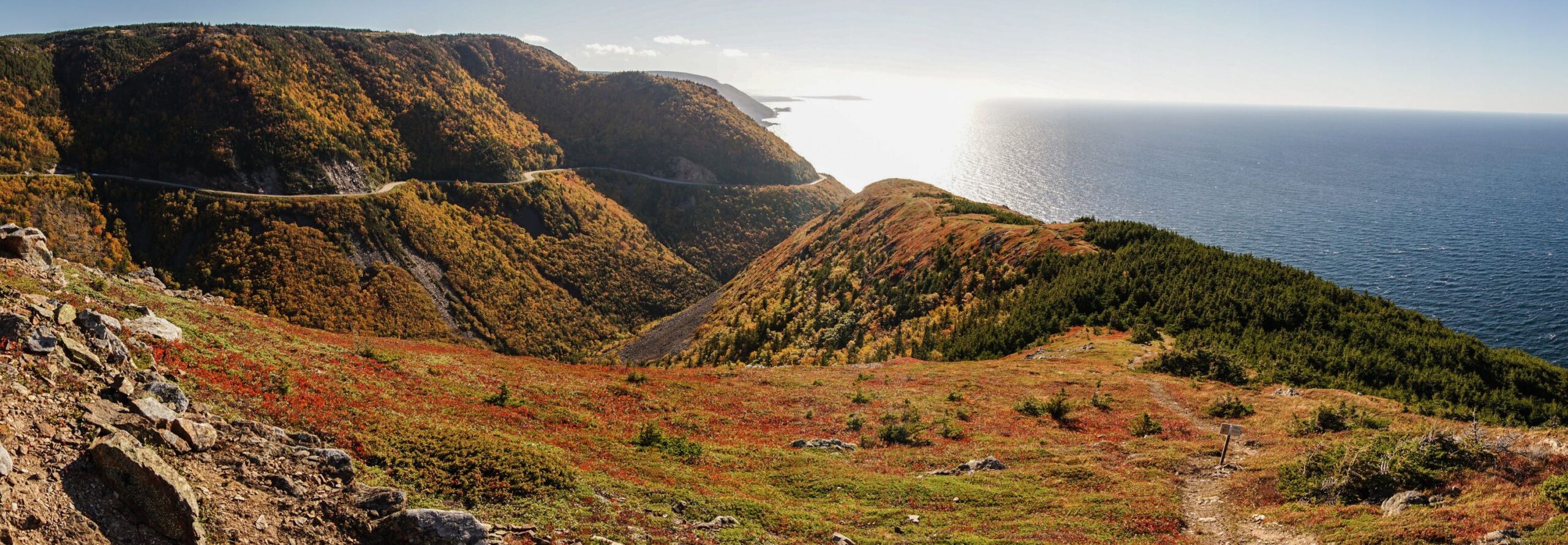
Concerts are held each evening at various venues all around the island (although this year done via video link), there are several workshops, and numerous other events focus on Celtic heritage and culture.
Cape George
The ‘Cape George Scenic Drive’ also gets labelled the ‘mini Cabot Trail’ (after the ‘real’ Cabot Trail, one of the world’s great scenic drives); that’s going a bit far, but this is still a delightful and scenic little diversion.
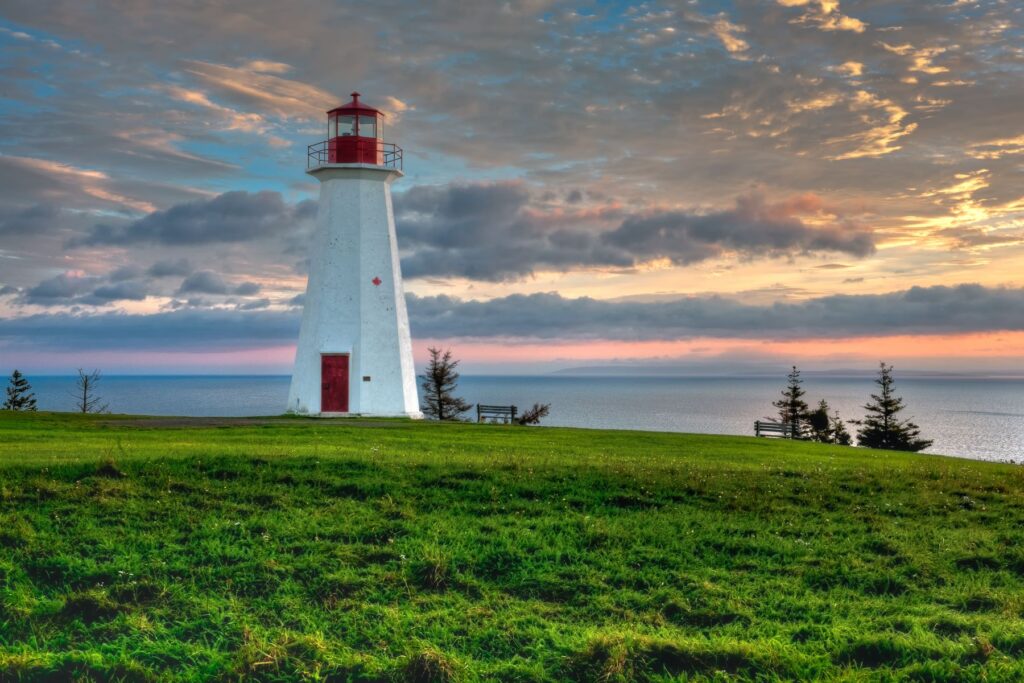
© Paul Reeves Photography, Shutterstock
Lovers of lighthouses, magnificent coastal scenery and hiking should include this detour (or side trip from Antigonish) in their itineraries.
Kejimkujik National Park
Autumn is a great time to explore the Nova Scotian wilderness. Those familiar with some of North America’s national parks might not ‘get’ Keji, at 38,000ha the Maritimes’ largest inland national park.
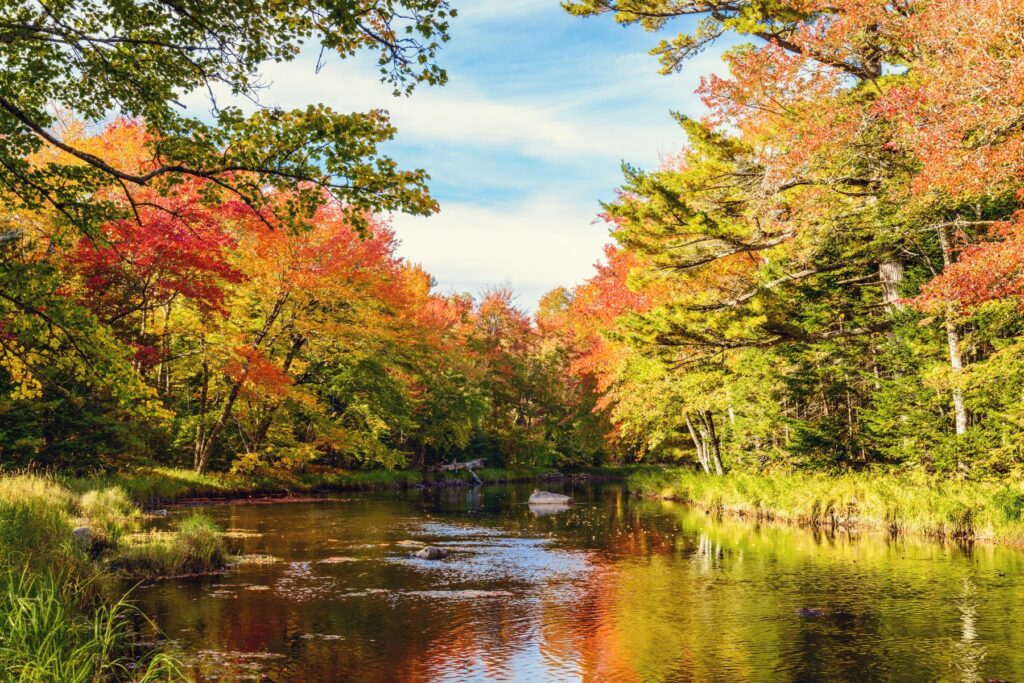
© Vadim.Petrov, Shutterstock
Don’t come here expecting magnificent sweeping panoramas, soaring mountains, towering waterfalls or vast canyons – this is a place of woodlands, lakes studded with islands, rivers and streams, best viewed not from a car window but on foot, from the saddle of a mountain bike, or, best of all by staying for a few nights, camping and travelling along the waterways by canoe. There are spectacular routes for a wilderness camping trip or even just a day paddle: at very least rent a canoe for an hour or two.
Wentworth
Although best known as the largest of the province’s few downhill-skiing destinations, Wentworth and the Wentworth Valley are popular year-round with lovers of the outdoors.
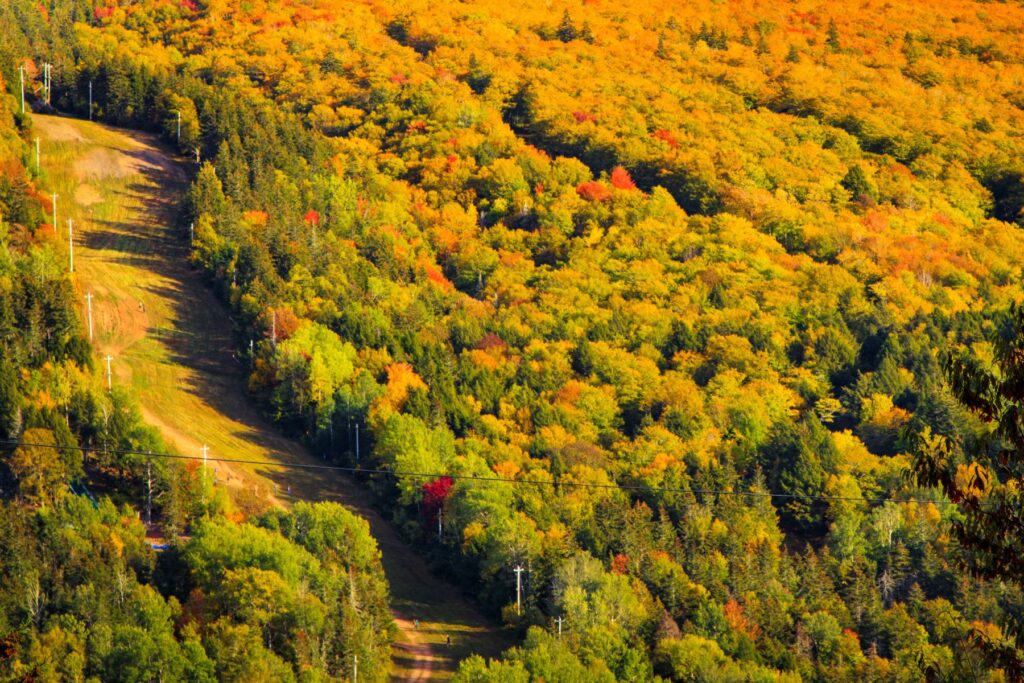
© Mark Klaamas, Shutterstock
When the snow has gone, the hilly region is ideal for hiking – there is a network of over 25km of hiking trails all centred on the Wentworth Hostel and nearby Wentworth Provincial Park – and biking. In autumn, the high proportion of maple trees contributes to a fine display of colours.
More information
Learn more about Nova Scotia in our comprehensive guide:
